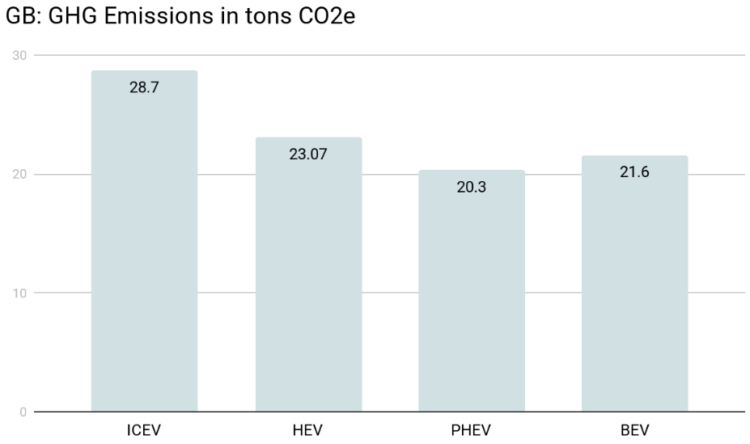Climate change & EVs: inconvenient numbers ?
Are electric cars a solution ?
The simple answer to this complex question is: it depends. On multiple factors, including the place where you live and move. This type of answer unfortunately does not align well with pre-conveived ideas – sometimes ideologies – which only tolerate absolute and monolithic answers.
The comparison of two complex ecosystems such as:
– the petrol industry and the internal combustion engine vehicle on the one hand,
– electricity production, batteries and electric vehicles on the other hand
requires a holistic analysis which encompasses the full life cycle, from manufacturing to usage to disposal at end of life.
We review here the findings of four such life cycle studies, conducted in or for four countries, in Europe and North America:
– Life Cycle CO2e Assessment of Low Carbon Cars 2020-2030 (2013), a study conducted in 2013 by PE International under mandage from the Low Carbon Vehicle Partnership, a british organization aiming to accelerate a sustainable shift to low carbon vehicles and fuels in the UK
– Cleaner Cars from Cradle to Grave (2015), a study lead by the Union of Concerned Scientists
– Bilans énergétiques, des émissions de gaz à effet de serre et autres impacts environnementaux induits par l’ensemble des filières de véhicules électriques et thermiques (2013), a study commissioned by Agence française De l’Environnement et de la Maîtrise de l’Energie (Ademe) and co-written by PE International
– Aktualisierung Umweltaspekte von Elektroautos), a swiss study mandated by the étude suisse mandatée par the swiss Federal Office for the Environment and updated in 2018.
The british study
The british study concludes that, in a typical scenario for 2020, an electric car will have a lifetime footprint of 21.6 tons of CO2, 6% higher than a PHEV (Plugin Hybrid Electric Vehicle) but 12% lower than a HEV (non rechargeable hybrid car). Total emissions for the electric car are 24.7% lower than its equivalent with an internal combustion engine.
The footprint, computed in tons of Green House Gas CO2 equivalent, is substantially the same between an electric and a plugin rechargeable. The electric car is cleaner, from a climate change standpoint, than an equivalent combustion engine vehicle, but only by 25%.
The main assumptions of this study are:
– Life cycle evaluation on the basis of 150’000 km of use
– Compact petrol car (Golf, Mégane, Focus) weighing 1240 kg and fueld by an E10 mix (gas with 10% of ethanol) and a NEDC mileage of 5.83 L/100 km, improving by 7% in 2020
– Hybrid car: Toyota Auris with a 1.3 kWh NiMH battery pack and a NEDC mileage of 4.0 L/100 km, improving by 6% in 2020
– Plugin rechargeable hybrid car: Toyota Prius Plug-In, with a 4.4 kWh Lithium Ion pack, an a NEDC mileage of 2.1 L/100 km, improving by 4% in 2020
– Electric car: Nissan Leaf, with a 24 kWh Lithium Ion pack and an electric consumption of 150 Wh/km, improved by 2% in 2020
– Production of electricity resulting in 390 g of CO2 equivalent per kWh











